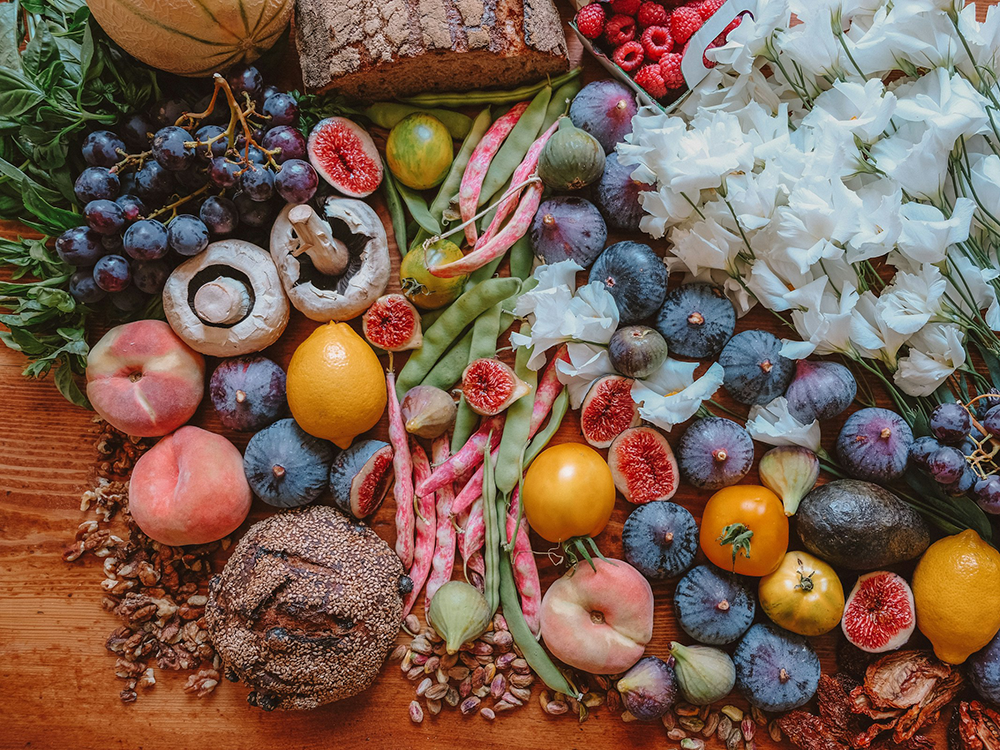
Since creating Menu Guide, we’ve encountered an increasingly diverse range of foods that may cause allergic reactions in adults and children. We’ve also found that the list of foods legally classified as allergens may vary by country.
In the UK, 14 foods are legally required to be declared as allergens. These are: celery, cereals containing gluten (such as wheat, barley and oats), crustaceans (such as prawns, crabs and lobsters), eggs, fish, lupin, milk, molluscs (such as mussels and oysters), mustard, peanuts, sesame, soybeans, sulphur dioxide and sulphites (if the sulphur dioxide and sulphites are at a concentration of more than ten parts per million) and tree nuts (such as almonds, hazelnuts, walnuts, brazil nuts, cashews, pecans, pistachios and macadamia nuts).
Although the 14 ‘regulated’ allergens are considered to be the most common causes of allergic reactions, there are many other foods that may cause a variety of intolerances.
Alliums
People with an allium intolerance may experience adverse symptoms when eating onion, garlic, leeks, shallots, chives and some flowers.
Buckwheat
A member of the Polygonaceae family (which also includes rhubarb and sorrel) buckwheat is a common food allergen in Asian countries, like Japan and Korea, but considered rare in the UK.
Fruit
Many types of fruit (including apple, avocado, banana, cherry, citrus fruit, jackfruit, kiwifruit, mango, melon, nectarine, peach, pear, pineapple, plum, strawberry and tomato) may cause different allergic reactions, some of which can be serious. These reactions are often part of pollen food syndrome, which usually affects people who are allergic to pollens and also suffer from hay fever. This is because the proteins in pollen are similar to the proteins in the fruits and vegetables.
Legumes and Pulses
Legumes are any plant from the Fabaceae family and pulses are the dried, edible seeds from a legume plant. People with an allergy to these plants and pulses may need to avoid a variety of foods including green beans, lentils and peas.
Quorn
Allergic reactions to Quorn products are usually caused by its mycoprotein content – a fungus-derived substance that forms the basis of many meat substitutes and may cause allergic and gastrointestinal reactions.
Vegetables
Like fruits, vegetables (including aubergine, beetroot, cabbage, carrot, celery, cucumber, lettuce, mushroom, peppers, potato and sweetcorn) may trigger an adverse reaction. Symptoms may be due to pollen food syndrome, or other factors including a sensitivity to chemicals that are present naturally in the vegetables, or an inability to digest the sugars they contain.
Other reported allergies and intolerances include:
– Alpha-gal: an unusual and rare allergy to a type of carbohydrate found in the muscles of mammals that can be triggered by a tick bite
– Lipid-transfer protein allergy: LTP syndrome is a complex food allergy caused by reactions to plant foods, especially the skin, pips and seeds
– Plant-based oils: unrefined oils contain proteins that may cause an allergic reaction, whereas refined oils, where these proteins are removed, are less likely to be troublesome
– Nightshade: some people have an immune response to the alkaloids in plants of the family Solanaceae, including potatoes, tomatoes, peppers, eggplant and paprika
– Capsaicin: a component in plants belonging to the genus Capsicum (a variety of peppers) can cause food intolerance symptoms
Helping customers with food allergies make safe choices
Along with the 14 regulated allergens, Menu Guide’s Advanced Plan provides custom icons for 10 additional food allergens: Alcohol, Balsam of Peru, Chili Peppers, Fruit, Garlic, Nightshade, Oats, Onion, Rice and Tartrazine.
Customers may also search Menu Guide’s allergen menus for any ingredients or food item that they need to avoid due to an allergy or food hypersensitivity.
Would you like to share more information with your customers? Try Menu Guide free for a month and see the difference it makes.

 Our Food – FSA & FSS Annual Review
Our Food – FSA & FSS Annual Review Best practice for allergen information
Best practice for allergen information Allergen information for distance selling
Allergen information for distance selling Draft guidance for allergen information
Draft guidance for allergen information Naming vegan alternatives to dairy foods
Naming vegan alternatives to dairy foods